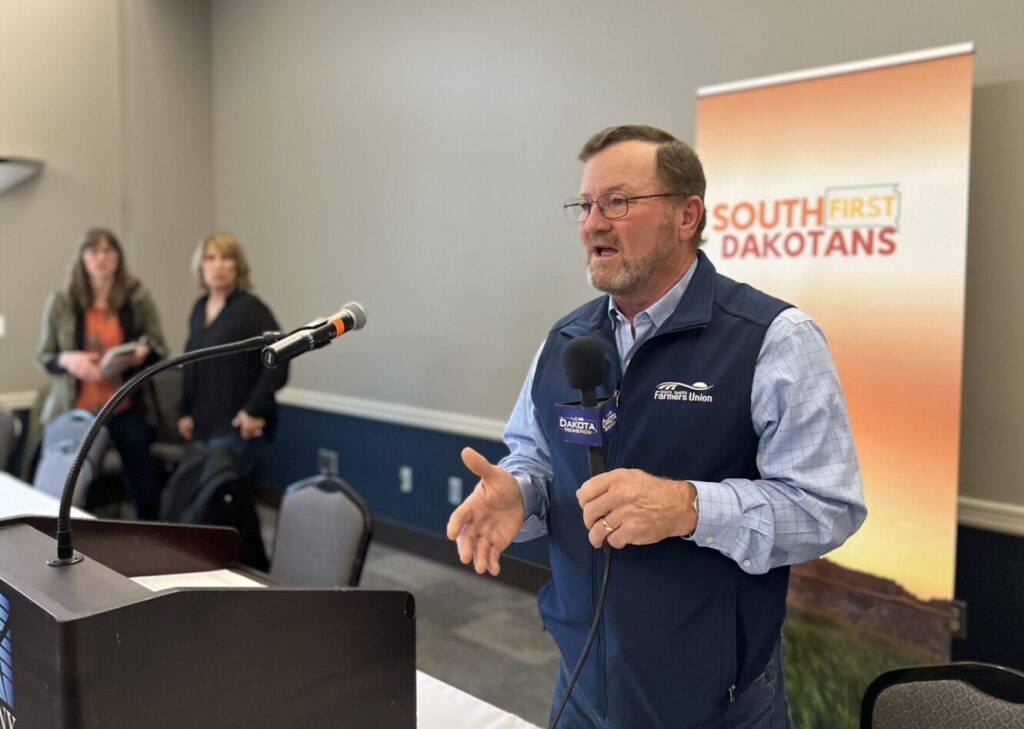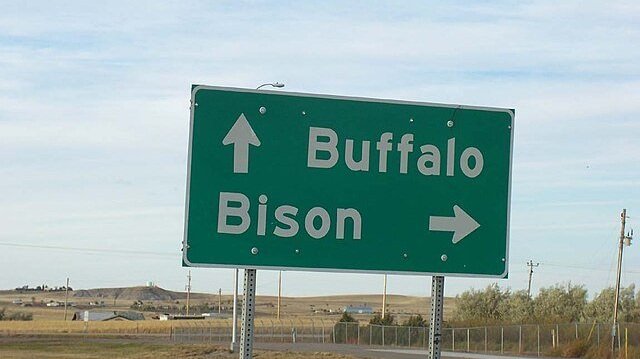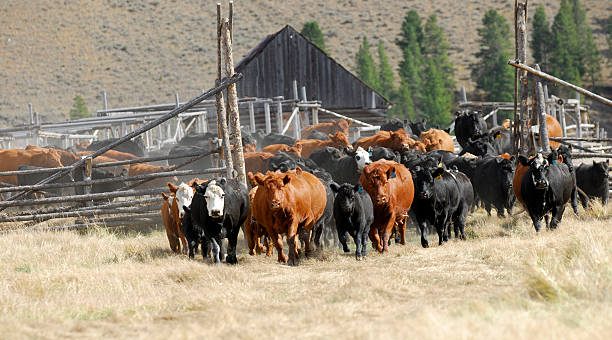SIOUX FALLS, S.D. — A statewide coalition has formed to pursue restrictions on the use of eminent domain for projects such as carbon dioxide pipelines.
The group introduced itself during a press conference Thursday at the Denny Sanford Premier Center.
The politically diverse coalition, named South Dakotans First, consists of the South Dakota Farmers Union, Dakota Rural Action, Landowners for Eminent Domain Reform, and various landowners.
Farmers Union President Doug Sombke told South Dakota Searchlight the coalition will advocate for property rights generally. But its creation is a response to Summit Carbon Solutions’ filing of eminent domain proceedings against more than 150 landowners for a proposed multi-state carbon dioxide pipeline. Summit has said the eminent domain actions have since been withdrawn.
“Eminent domain” refers to the power to access private property for public use, provided the owner is given just compensation.
Summit’s project
Summit applied for a permit to construct a pipeline in February 2022. The South Dakota Public Utilities Commission denied the application last month, citing the route’s conflicts with ordinances in four counties that mandate minimum distances between pipelines and existing homes, businesses and other features.
“Just because you put a permit application in, that doesn’t mean you get to trespass on peoples’ land,” Sombke said.
Sombke said the definition of “public use” will be stretched beyond its original intent if it allows companies like Summit to use eminent domain without delivering a commodity the general public uses – like water, gas or electricity.
Summit seeks to capture carbon dioxide emitted from 31 ethanol plants in multiple states and transport it in liquid form to an underground sequestration site in North Dakota. The multi-billion-dollar project is eligible for billions in tax credits from the federal government, as incentives for removing heat-trapping carbon dioxide from the atmosphere.
Sombke said mitigating climate change is arguably a “public use,” but carbon is not a commodity when it’s being buried underground.
“If people want to do stuff about carbon in the atmosphere, they need to do it in a way that works with the landowners,” Sombke said. “The majority of people, people in the middle, they are with us on that.”
Rep. Karla Lems, R-Canton – who owns land the pipeline would cross – was in attendance at Thursday’s press conference. She sponsored a failed bill last winter that would have barred eminent domain for carbon pipelines. This winter, she plans to support a bill that would ban pipelines from using eminent domain until they have a permit from the Public Utilities Commission. Lems and Sombke said a number of other bills are in the works but are not ready to be shared.
Sombke shared the results of an online survey the coalition funded – conducted by Embold Research. It surveyed 1,037 likely general election voters in the state from Sept. 5 to 10 and found that 85% of people familiar with eminent domain oppose its use for “private purposes.” Additionally, nearly 90% of voters surveyed don’t think Summit should be allowed to use eminent domain to complete the project.
Summit responds
The coalition is bracing for opposition. Proponents of the pipeline have said anti-eminent domain legislation would “change the rules in the middle of the game.”
Sabrina Zenor, a spokesperson for Summit, said in an emailed statement that nearly 75% of affected landowners have signed voluntary easement agreements giving access to the company.
“Our goal is 100% voluntary easement agreements, providing fair compensation and respectful land management,” she wrote. “This project is about opening new markets for South Dakota ethanol and corn farmers.”
Zenor referenced multiple court decisions that she said support Summit’s right to use eminent domain. She said a poll of 2,000 registered voters nationwide by the Renewable Fuels Association showed 50-55% of respondents support carbon pipeline projects, and roughly one in five voters express strong support.
Legislators look ahead
Rep. John Hansen, R-Dell Rapids, Rep. Chris Karr, R-Sioux Falls, and Rep. John Sjaarda, R-Valley Springs, attended the Thursday event.
Hansen said the upcoming legislative session is “shaping up to be less about Democrats versus Republicans, and really about who is going to stand up for the individuals that they represent, and who is going to just shill for corporations who come and fund their campaigns with donations.”
Senate President Pro Tempore Lee Schoenbeck, R-Watertown, did not attend Thursday’s event. He was part of the state Senate committee that unanimously rejected the bill that would have prevented carbon pipeline projects from using eminent domain. The bill had already passed the House of Representatives 40-28, but it was defeated 9-0 in the Senate Commerce and Energy Committee.
Schoenbeck said the people associated with South Dakotans First have “worn everybody out and they’re just going to have to wait until we get to Pierre” to see how Senate leadership reacts to their new efforts.
Doug Sombke said South Dakotans First also plans to support the people living near and and who are opposed to the newly proposed state prison location south of Harrisburg.










